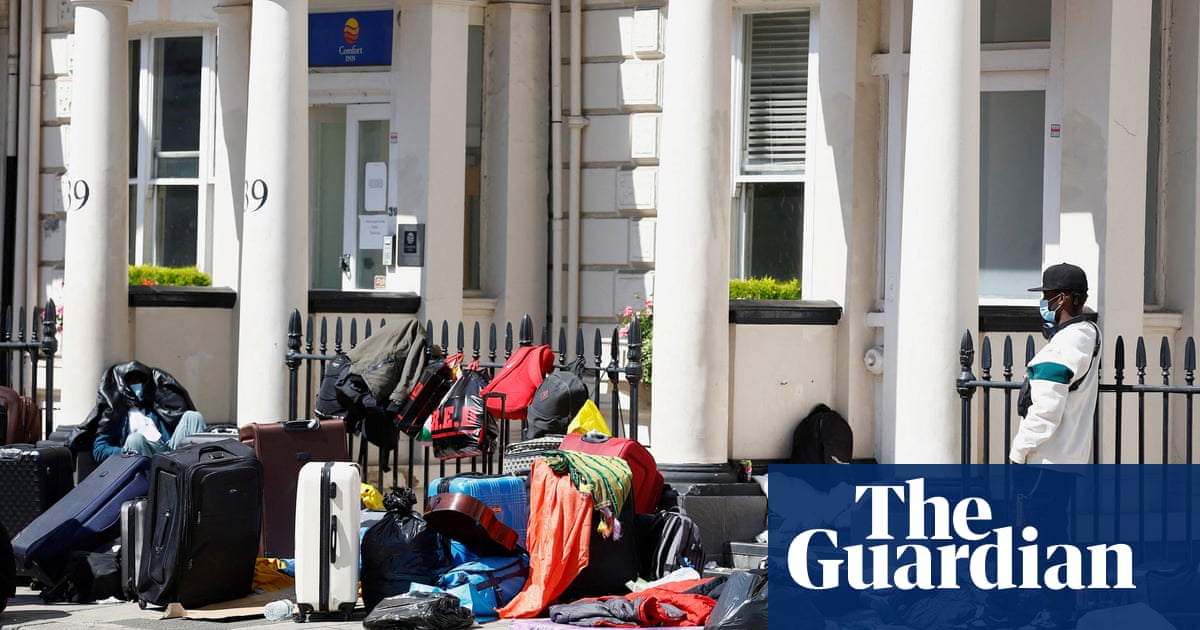
A Home Office decision not to give thousands of asylum seekers money to make calls to friends and family during the pandemic has been ruled unlawful by the high court.
The government could be forced to backdate the weekly payments for an estimated 10,000 asylum seekers, potentially costing millions of pounds.
Following an earlier hearing, the Home Office agreed to make payments and back payments of £8 a week for other essential living costs previously denied to asylum seekers living in hotels, which officials say is costing £4m. But phone costs were not included.
The case was brought by an asylum seeker from Honduras who was placed in hotel accommodation from May 2020 until February 2021.
The judge, Mrs Justice Farbey, ruled that being able to communicate by phone was essential for “interpersonal and social relationships as well as cultural and religious life”.
Since the start of the pandemic, the Home Office has increased its use of hotels, hostels and barracks to house asylum seekers almost tenfold, with many staying there for months.
Previously, new arrivals would be housed in such accommodation for only a few weeks and so were not given money to fund essentials.
Internal documents disclosed to the high court the day before the hearing began revealed that in August 2020 senior Home Office officials urged the home secretary, Priti Patel, and the-then immigration minister Chris Philp to make payments of £12.11 a week to asylum seekers in hotels for essential living needs.
However, Patel and Philp rejected the recommendations on the basis that “the asylum system already appears more generous than European equivalents and we do not want to further increase any possible pull factors”.
Ahmed Aydeed, of Duncan Lewis Solicitors, who represented the asylum seeker in the case, said: “The home secretary, throughout the pandemic, failed to meet the essential living needs of asylum seekers. She chose to ignore the advice of her civil servants and has again been forced by the courts to do the right thing. We are glad our clients finally have access to everyday essentials and can communicate with their families again.”
A Home Office spokesperson said: “During the height of the pandemic, to ensure asylum seekers were not left destitute, additional full-board accommodation was required at extremely short notice, but we are working to end the use of hotel accommodation.
“Needs related to food and toiletries continue to be met by the accommodation provider under existing contractual arrangements and we provide a weekly cash allowance. We continually review the provision to make sure it meet the needs of those in our care and will look carefully with our providers to ensure provision for communication is available.”












